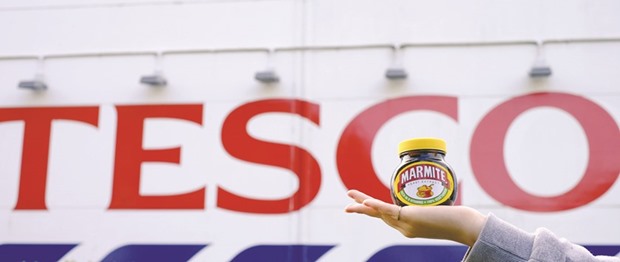World stocks mostly fell yesterday as weak Chinese data reinforced fears over the world’s number two economy, while a spat between Britain’s Tesco and Dutch giant Unilever hit sentiment in Europe.
Europe’s main stock indices were all lower at the close, while Wall Street was also down.
Earlier, Asian bourses buckled on news that China’s exports plummeted last month, as anaemic global demand hit its economy while weak imports fuelled worries about crucial domestic appetite.
However, troubled Samsung Electronics staged a slight recovery on bargain-buying after losing about 10% of its value this week on the Galaxy Note 7 crisis.
China said exports plunged more than predicted last month, disappointing markets after a recent upbeat reading on factory activity. In yuan terms it snapped six straight months of increases. Imports also fell, confounding predictions for a rise.
“The drop in China’s trade surplus, which included a surprise fall in imports, meant the basic resource sector which has a big exposure to Chinese commodity demand was dragging the UK equity benchmark lower,” said CMC markets analyst Jasper Lawler.
Mining stocks listed in London suffered in response, with Rio Tinto falling 4.9%, BHP Billiton 4.4% and Anglo American 4.8%.
A seemingly Brexit-fuelled spat between British supermarket giant Tesco and Dutch food and consumer goods multinational Unilever erupted Thursday, pushing shares in both companies sharply lower.
Unilever, which makes popular household brands like Flora margarine, PG Tips teabags and Persil washing powder, wanted major price hikes due to the Brexit-driven slump in sterling – which it said has ramped up the cost of imported materials.
Unilever also makes the popular yeast extract spread Marmite, prompting CMC’s Lawler to label the dispute “Marmageddon”, and spawning a Marmitegate hashtag on Twitter.
Tesco – Britain’s biggest retailer which faces intense price competition in its domestic supermarket sector – has refused to lift prices.
That prompted Unilever to halt deliveries to the company, sparking a shortage of its branded goods on the supermarket’s shelves.
“The flare-up does show that pressures are building in the consumer sphere following the Brexit vote and they are likely to persist,” warned City Index analyst Ken Odeluga.
“Unilever is legitimately trying to offset some of the revenue declines and input cost rises that are a direct consequence of sterling’s collapse over the last few months.
“But Tesco is loath to put a 10% jump in Unilever product prices in front of its customers whilst a price war is raging with rivals.”
Tesco stock were 3% down at the close, while Unilever London-listed shares dropped by 3.4%. Other retailers also felt the pain, with Sainsbury’s down 0.9% and Marks and Spencer 2.7%.

A woman holds a jar of Marmite, a Unilever brand, outside a Tesco store near Manchester. The biggest British retailer’s stocks were 3% down at the close yesterday.
